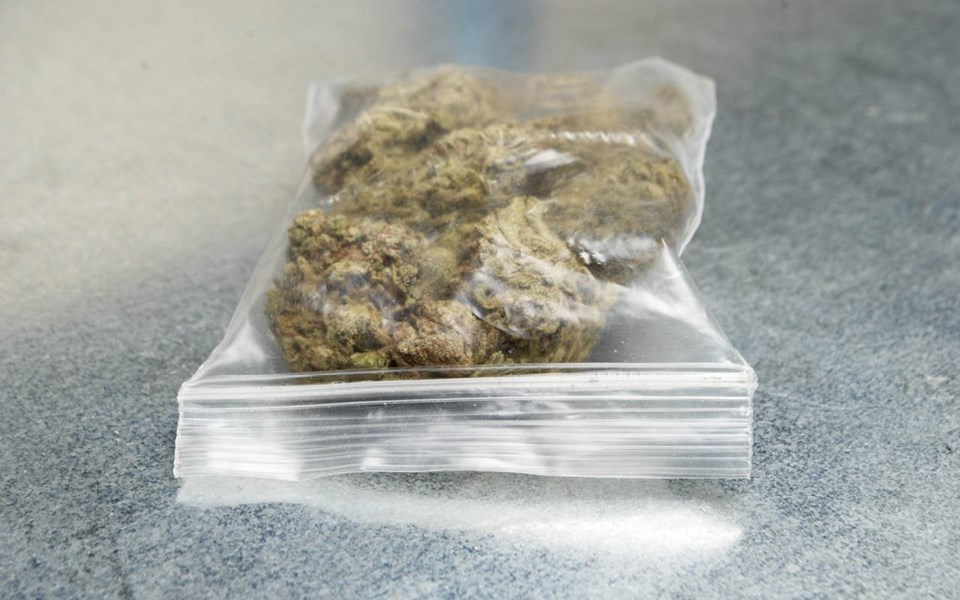ASPEN, Colo.—A Pitkin County sheriff's deputy recently emptied two boxes at the local airport installed to allow travellers to rid themselves of cannabis products before going through federal security gates to board airplanes.
The Aspen Daily News said that the contents of the boxes suggest that "many people are wildly overestimating how much they can consume during a vacation here, had second thoughts about trying to take marijuana home, or both."
Showing a photo of the contents of the two boxes, the manager of a marijuana store in Aspen estimated the discarded bud, vape pens and 30 joints were worth $15,000 to $20,000. Also discarded was a product called "aphrodisiac chocolate."
Pitkin County installed the amnesty boxes at the airport in January 2014, when legalized sales of marijuana began in Colorado. Federal law, however, continues to frown sternly on possession of marijuana.
"With a lot of what we see, it's clear someone made a bulk purchase, consumed a small amount, and then the rest gets dumped," said Ron Ryan, the undersheriff for Pitkin County. "Either they didn't know what they were getting into, or they changed their mind. There's a lot of brand-new unwrapped product."
The Aspen Times reported that the city has five cannabis dispensaries, and two more applications have been filed, including for one business called the Green Joint. Last year, the marijuana shops sold $11.3 million of cannabis products, topping the $10.5 million generated by liquor stores.
Students march for gun-control policies
ASPEN, Colo.—While cannabis smokers were exhaling at the stroke of 4:20 p.m. last Friday afternoon on the unofficial holiday of marijuana, students in Aspen that morning remembered something nobody celebrates: the 19th anniversary of the shootings at Columbine High School in a Denver suburb.
Among the students were 250 at Aspen High School, roughly half the student body. The Aspen Daily News reported they walked through fresh snow to a park, where they heard speakers, including Pitkin County Sheriff Joe DiSalvo.
DiSalvo said he believed that military-grade assault rifles should not be available to civilians. He predicted the movement started by students after the massacre at Parkland, Fla., in February will lead to that change.
Local politicians were also in the metaphorical sights of the students. Tullis Burrows, a sophomore in the school, called out U.S. Rep. Scott Tipton, a reliable opponent of gun-control legislation, for taking campaign contributions from the National Rifle Association. "We know how you are, and we know what you've done, and we are coming for you," said the student. Tipton represents Aspen and many of the other ski towns, islands of liberal blue in western Colorado's sea of conservative red.
In New Mexico, students from Taos High School and other local schools also left classrooms to march through sleet and snow while carrying signs such as "This is Not Normal."
The Taos News reported that opposition to the march was limited to a few people shouting derisive comments from passing vehicles as the students walked to the town plaza. During the march, students chanted rhymes deriding the NRA.
In Aspen, students who left classes for the march will be assessed for unexcused absences. The same would have applied to the public school in Taos, except the town had a water problem so students had been dismissed anyway.
Counties join lawsuit about opioids
PARK CITY, Colo.—Two more Utah counties have joined Summit County in filing lawsuits against some of the county's largest manufacturers and distributors of opioids. The laws name 25 businesses and individuals from nine major opioid manufacturers and distributors as defendants.
The latest allegations by Salt Lake and Tooele counties parallel those made by Summit County, of which Park City is the largest municipality. They say they have had to spend an "exorbitant amount of money" as part of the county's struggle with the opioid epidemic as a direct result of the actions of the defendants.
Margaret Olson, attorney for Summit County, told The Park Record she expects at least a half-dozen other Utah counties will be signing with the legal firms that have filed the lawsuit. She said the additional jurisdictions would improve the chances of a settlement for Summit County and also spread the out-of-pocket costs among them, too.
The three law firms that have filed the lawsuits are working on a contingency fee agreement. They will be paid 50 per cent net of whatever may be awarded.




